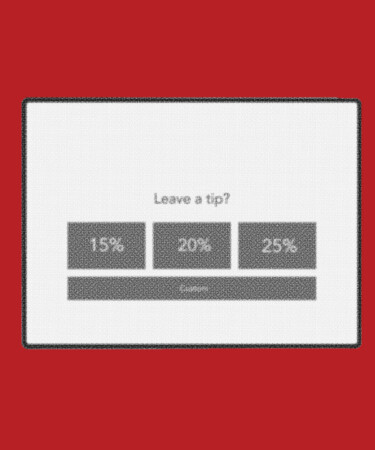There’s been a lot of coverage in the news lately about both presidential candidates proposing eliminating federal taxes on tips. But what would that actually look like for service and hospitality workers? And is it a good thing?
This is potentially very big and there are a lot of questions to be answered. But before I dive in, I should explain how taxes are currently handled, and how they are supposed to happen (according to the IRS).
How It’s Supposed to Work
Any tip received by a service employee is subject to taxation. Whether it’s a quarter left on a $100 tab or a generous $500 tip on a credit card, it’s all taxable. (One exception here is if the total amount of tips earned in one calendar month is less than $20.) The current tax system is straightforward, though there are still plenty of operators who don’t know or believe that they have a legal obligation to report tips. It’s the employee’s responsibility to report these earnings to their employer, who then reports them to the government.
Restaurants, for their part, have a dual role. They are tasked with not only collecting taxes on tips, but also paying payroll taxes on these tips. For many establishments, particularly smaller, mom-and-pop operations, this is a labor-intensive process with many opportunities for oversight, intentional or otherwise. I’ve overheard more than one restaurant owner say “it’s on the employee to report, and if they don’t, it’s not my fault,” which can lead one down a very slippery and potentially costly slope.
The Reality of Tip Reporting
Credit card tips are relatively straightforward. They are tracked by processors and are visible to both employers and employees, leaving a clear paper trail. However, cash tips introduce a murkier element. Service staff often underreport their cash tips, either intentionally or due to lax enforcement.
While some establishments require reporting of all cash tips, others may turn a blind eye. In some cases, employees might exaggerate the instances of not receiving tips to justify underreporting. (“Oh, yeah, that $100 tab stiffed me, can you believe it?”) Often it’s bending the truth, but as someone who has been stiffed on a $1,000 bill, yeah, it happens. To be honest I know quite a few owners who don’t care at all about reporting cash tips — they simply don’t feel the need to blow the whistle on it. (Again, a slippery and potentially costly slope.)
What if Federal Taxes on Tips Were Eliminated?
Eliminating federal taxes on tips could be transformative. For service workers, particularly in tip credit states, this change could mean a significant increase in take-home pay. Tip credit states allow employers to pay below the minimum wage, provided that employees make up the difference with tips. In such scenarios, taxes on these tips often result in strikingly low paychecks.
I’m sure people have seen the TikTok and Instagram videos of a tipped employee receiving something like a $2.34 paycheck after working 50 hours in a week. What they are not seeing on the video is the amount of tips received for that pay period. But the removal of tip taxes could turn such meager paychecks into more substantial ones, effectively boosting wages by thousands, or even tens of thousands, of dollars annually.
Whether the candidates’ proposed changes will affect payroll taxes is not clear at the moment, but if they do, eliminating tip taxes can be equally beneficial to an employer. Consider a mid-sized restaurant with $2 million in annual revenue and average tipping rates of 20 percent. This translates to $400,000 in tips. With payroll taxes typically ranging between 11 and 13 percent, the potential savings would be $44,000 to $52,000 annually. In an industry known for its razor-thin profit margins, a 2 to 3 percent boost to the bottom line is not insignificant.
The Bottom Line
Whether or not eliminating federal taxes on tips is a good thing depends largely on one’s perspective. For restaurant owners, it could be a windfall. For many tipped employees, it’s a clear financial boon. For government officials grappling with budget deficits, the elimination of tip taxes presents a more complex picture. It’s a policy shift that promises significant benefits to workers and businesses alike, but it also poses questions about the broader fiscal implications.
This story is a part of VP Pro, our free platform and newsletter for drinks industry professionals, covering wine, beer, liquor, and beyond. Sign up for VP Pro now!
